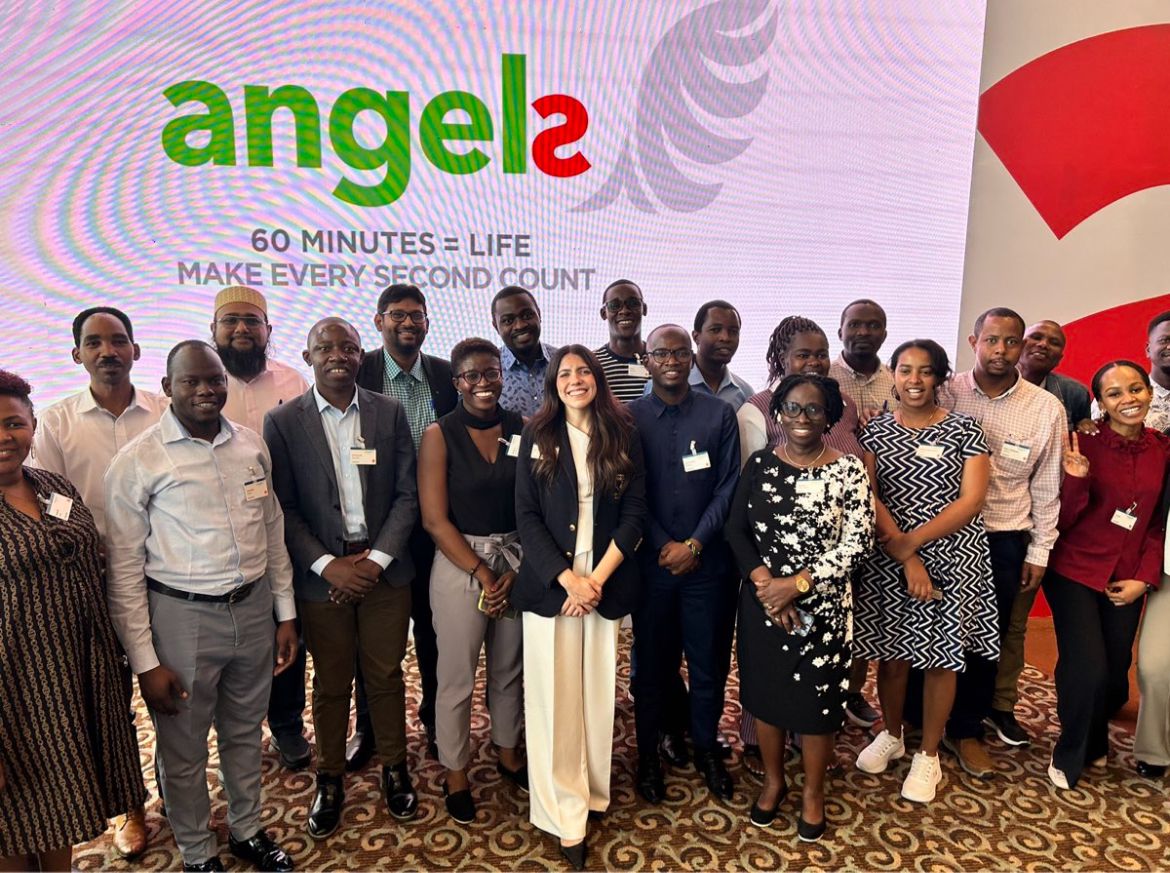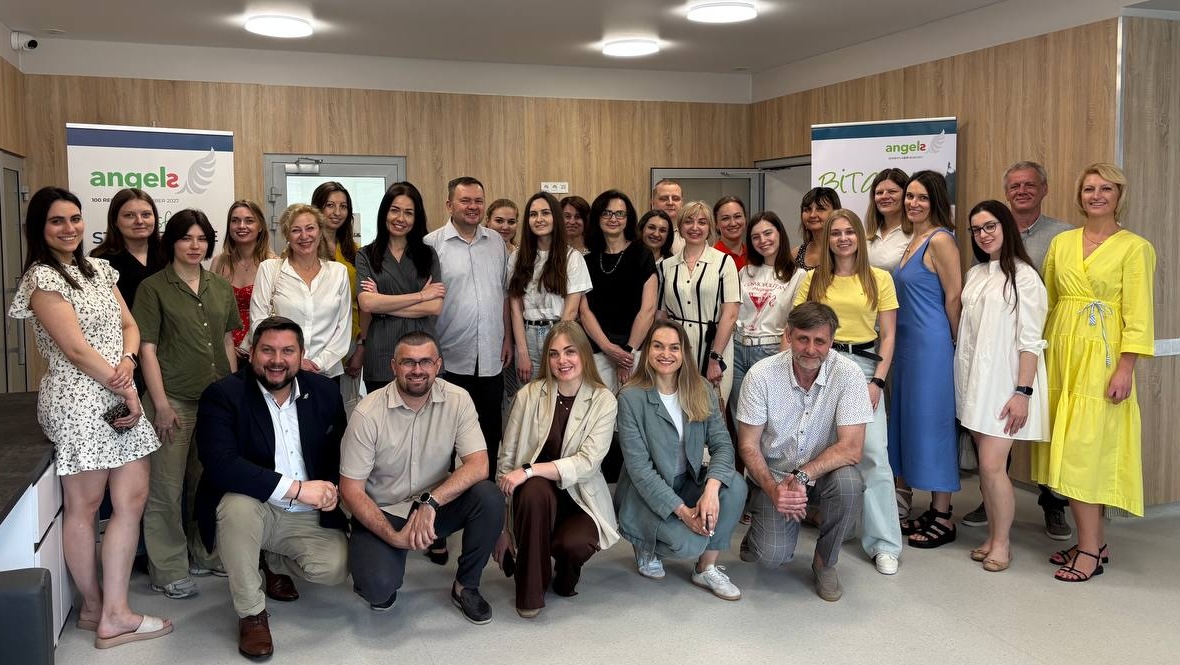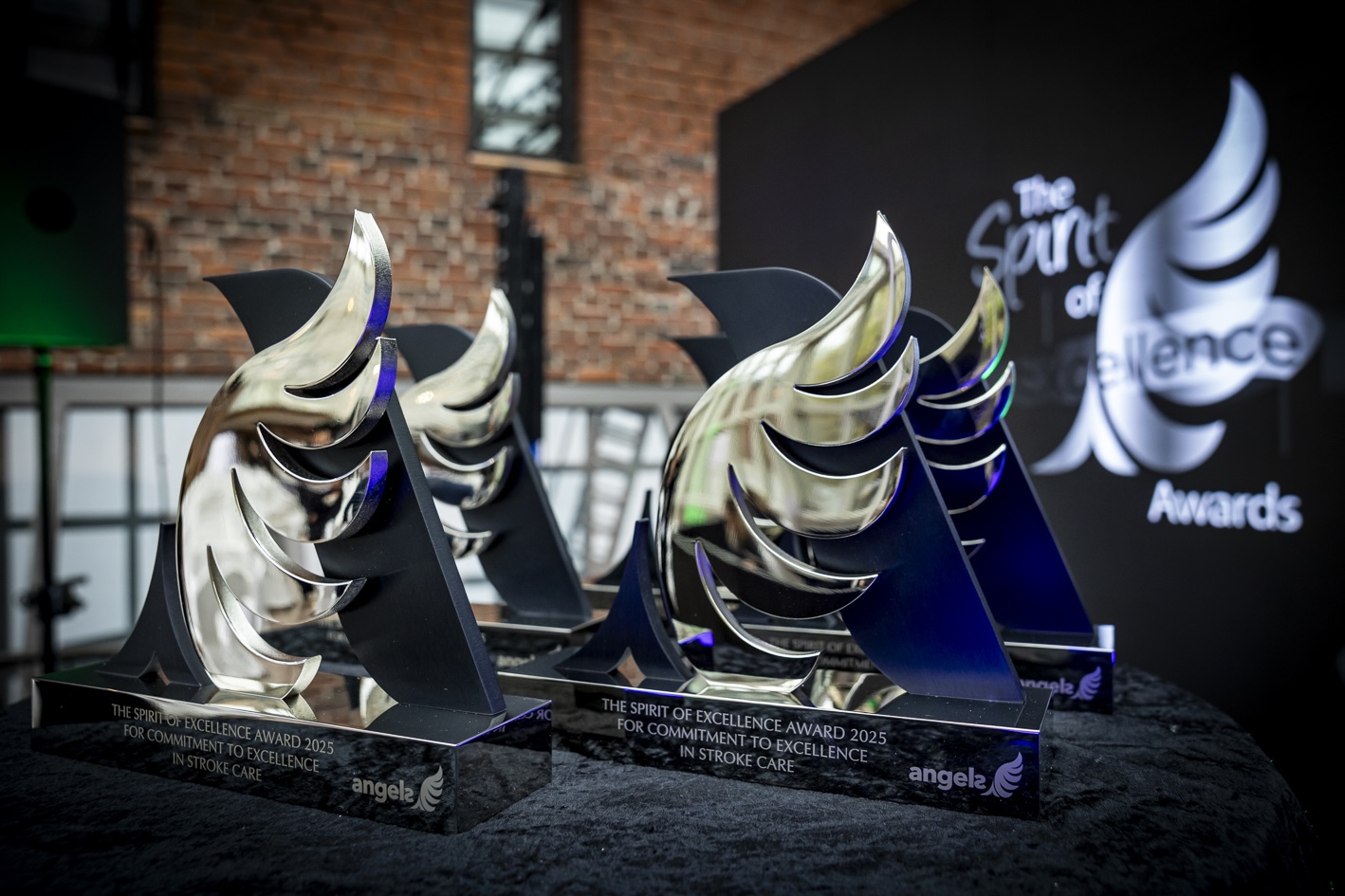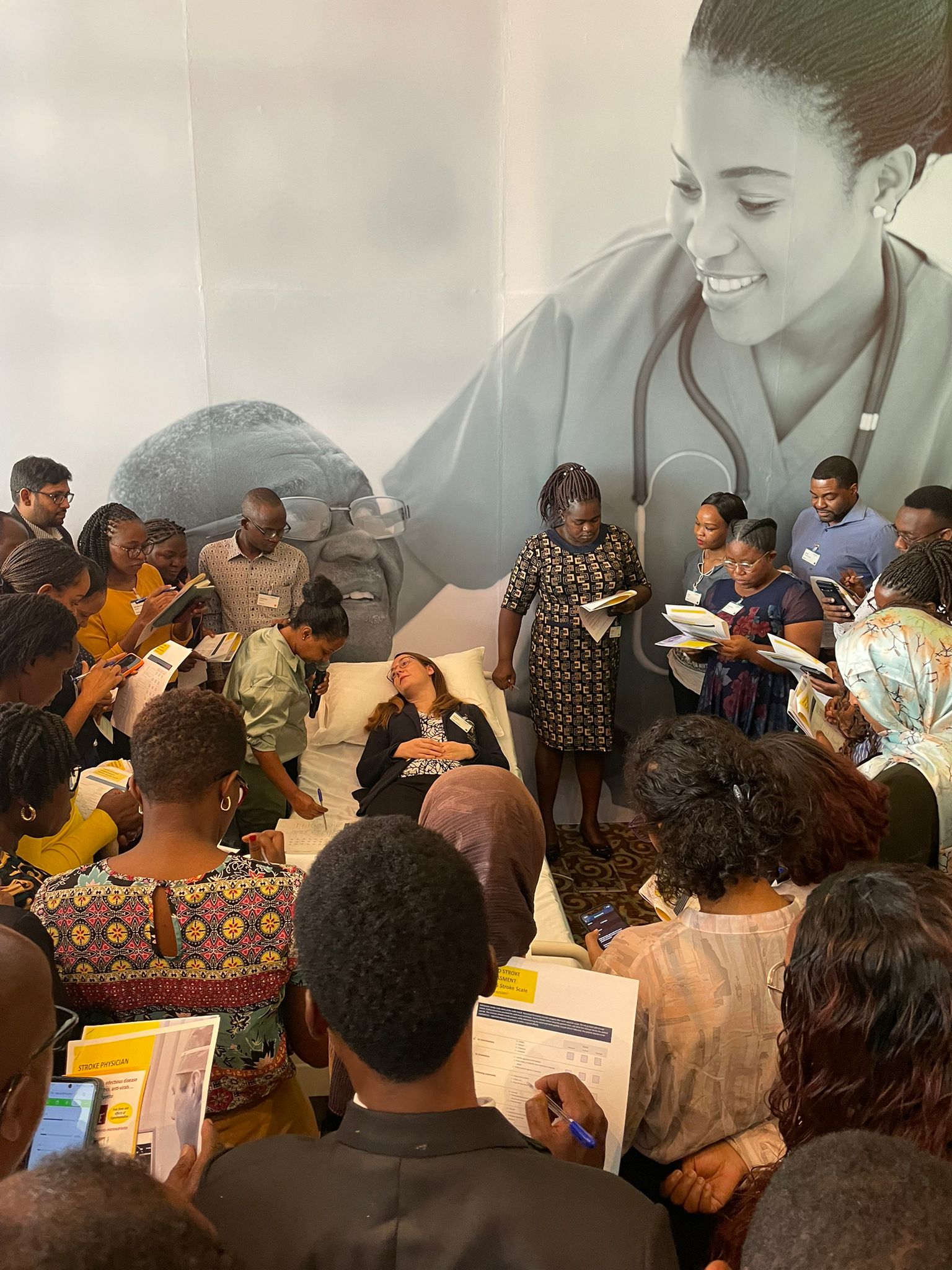
Tư vấn viên thiên thần ở Kenya Annie Kariuki đã ở vị trí của cô chưa đầy một tháng khi sự kiện Angels Đào tạo người huấn luyện đầu tiên ở Đông Phi đẩy cô vào sâu. Không có sự hạ cánh nhẹ nhàng nào cho “thiên thần bé nhỏ” này vì đôi khi các chuyên gia tư vấn mới được giới thiệu. Thay vào đó, trải nghiệm sống động khi đồng tổ chức sự kiện Đào Đào tạo người huấn luyện đầu tiên của cô đã nhanh chóng theo dõi sự giới thiệu của cô về thế giới chuyển đổi chăm sóc đột quỵ và mang lại cho cô động lực mà cô sẽ cần để giải quyết một trong những thách thức khó khăn nhất trong vũ trụ Angels.
Chỉ có một số ít trong số 30 chuyên gia chăm sóc sức khỏe tham dự sự kiện này hiện đang điều trị đột quỵ cấp tính, Rita Rodrigues của nhóm cốt lõi Angels, cùng với đồng nghiệp Madeline Bucher, cho biết, đã đến Nairobi để hỗ trợ sự kiện này.
Nhưng không phải vì thiếu can đảm hay kỹ năng.
“Chúng tôi thấy rằng những bác sĩ này có hiểu biết về phương pháp điều trị bao gồm nghiên cứu mới nhất và khi sử dụng mô phỏng bệnh nhân ảo Body Interact, họ có khả năng cao trong việc ra quyết định và làm việc như một nhóm”, Rita nói, đồng thời cho biết thêm rằng “họ đã thể hiện ý chí mạnh mẽ để hợp tác”.
Tuy nhiên, hầu hết bệnh nhân đến ngoài cửa sổ điều trị, thường là hai đến ba ngày sau khi bị đột quỵ. Nếu họ đến kịp thời để được điều trị cứu mạng, hãy tranh giành để tìm tiền trả cho việc điều trị (hiện không được chính phủ hoàn trả) lãng phí bất cứ thời gian quý báu nào còn lại.
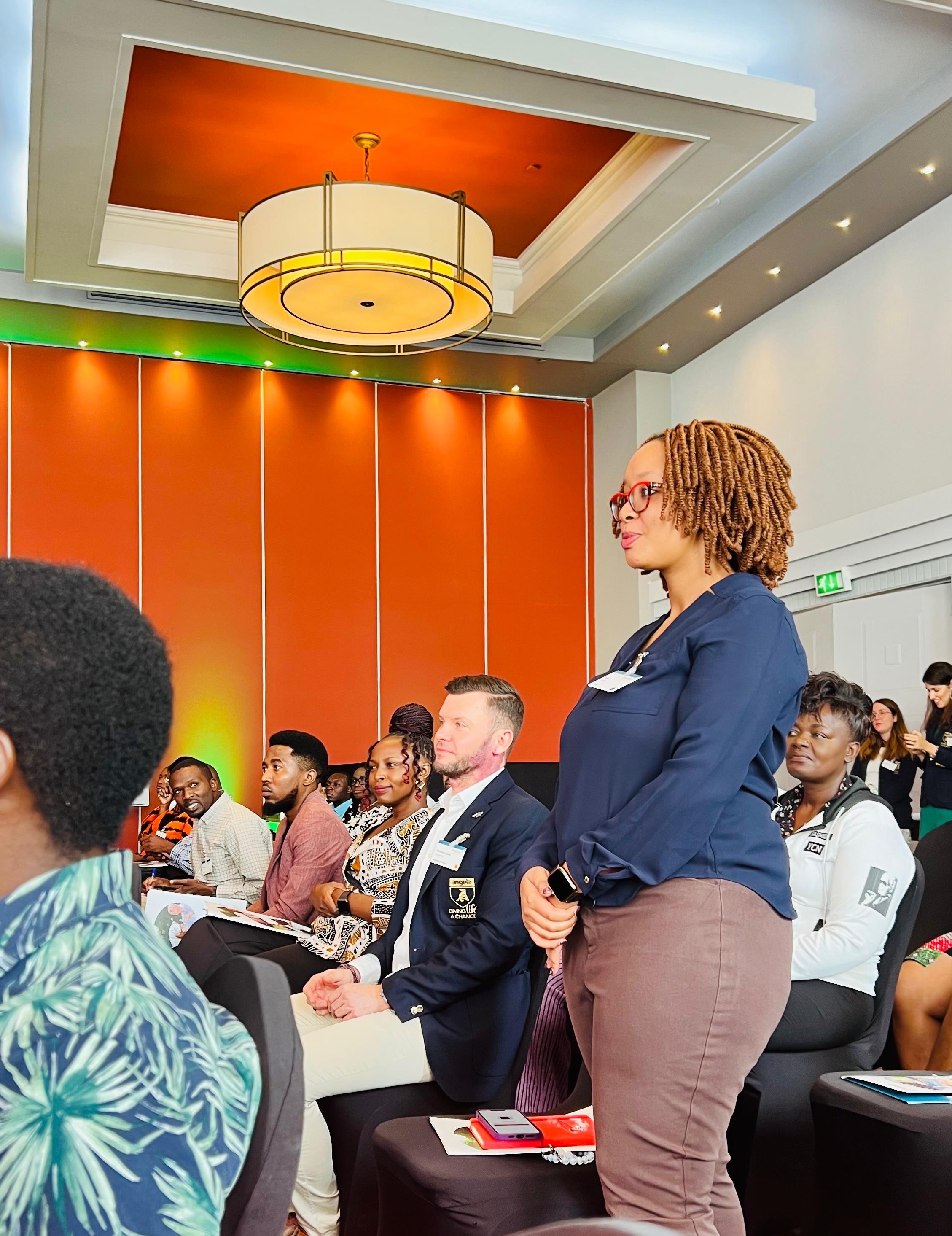
Annie là một nhà vi sinh học và không phải là một nhà thần kinh học, nhưng cô đã trực tiếp trải nghiệm về việc khó tiếp cận điều trị cấp tính và sự tàn phá sau đột quỵ như thế nào. Cô là một thiếu niên khi bà ngoại của cô, sau khi lần đầu tiên phàn nàn về đau đầu, bắt đầu có dấu hiệu đột quỵ. “Cô ấy không sống gần một thành phố”, Annie giải thích. “Vì vậy, khi cô ấy đến bệnh viện gần nhất, họ nói rằng họ không thể giúp cô ấy.” Các bác sĩ đã giới thiệu họ đến một bệnh viện lớn hơn, nơi điều tương tự cũng xảy ra: Bà của Annie được yêu cầu đến bệnh viện ở thủ đô. “Khi cô ấy đến đúng bệnh viện thì đã quá muộn. Cô ấy bị tàn tật vĩnh viễn ở bên trái và tôi đã chứng kiến cô ấy trở thành vỏ bọc của con người sôi động mà cô ấy từng là.”
Annie, người trong đại dịch Covid đã làm việc ở tuyến đầu với tư cách là một kỹ thuật viên y tế cấp cứu tiên tiến, đã nộp đơn xin gia nhập Angels khoảng một năm sau khi bà cô qua đời và giờ đây có thể giúp định hình một tương lai nơi nhiều bà hơn ở Đông Phi sẽ đến đúng bệnh viện kịp thời.
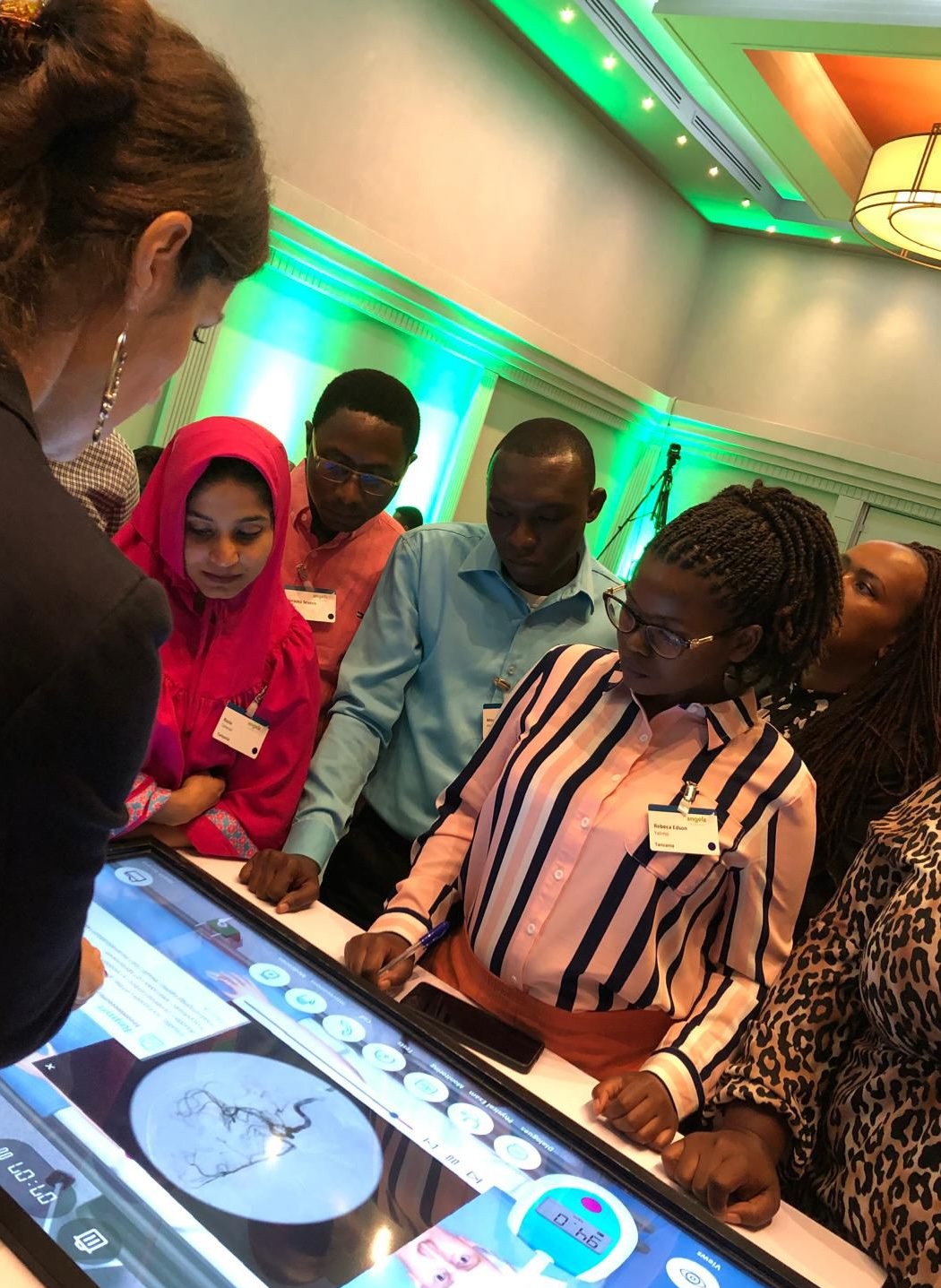
Để hỗ trợ việc đào tạo ở Nairobi, Jan và nhóm của mình đã mời hai chuyên gia về đột quỵ quốc tế – Tiến sĩ Francisco “Pachi” Moniche, điều phối viên đột quỵ tại Bệnh viện nổi tiếng Virgen del Rocio ở Seville, Tây Ban Nha và Tiến sĩ Louis Kroon của bệnh viện công được trao giải kim cương đầu tiên ở Châu Phi cận Sahara, Steve Biko Academic ở Pretoria. Họ đã đưa ra chương trình đào tạo bao gồm giới thiệu về hướng dẫn đột quỵ, sau đó là các hội thảo song song về chụp CT, tối ưu hóa con đường đột quỵ và chăm sóc sau cấp tính bao gồm Dự án Arrow được phát triển ở Tây Ban Nha để chuẩn hóa điều dưỡng đơn vị đột quỵ.
Một hội thảo của NIHSS vào ngày thứ hai cho thấy sự cải thiện rõ rệt về độ chính xác đạt được khi tham gia sau khi được hướng dẫn bởi Tiến sĩ Kroon. “Một giáo viên tuyệt vời làm nên một học sinh tuyệt vời. Chúng tôi rất biết ơn cơ hội này”, Tiến sĩ Kodichimma Onwuka, một chuyên gia nội thuốc tại Bệnh viện Giảng dạy Đại học Nigeria, nhận xét trong ứng dụng sự kiện.
Các bác sĩ Kroon và Moniche cũng tiến hành mô phỏng bệnh nhân kết thúc vào ngày thứ hai, trong đó Annie và trưởng nhóm Matteusz Stolarczyk từ Ba Lan tỏa sáng trong vai trò tương ứng của người vợ và bệnh nhân bị ảnh hưởng.
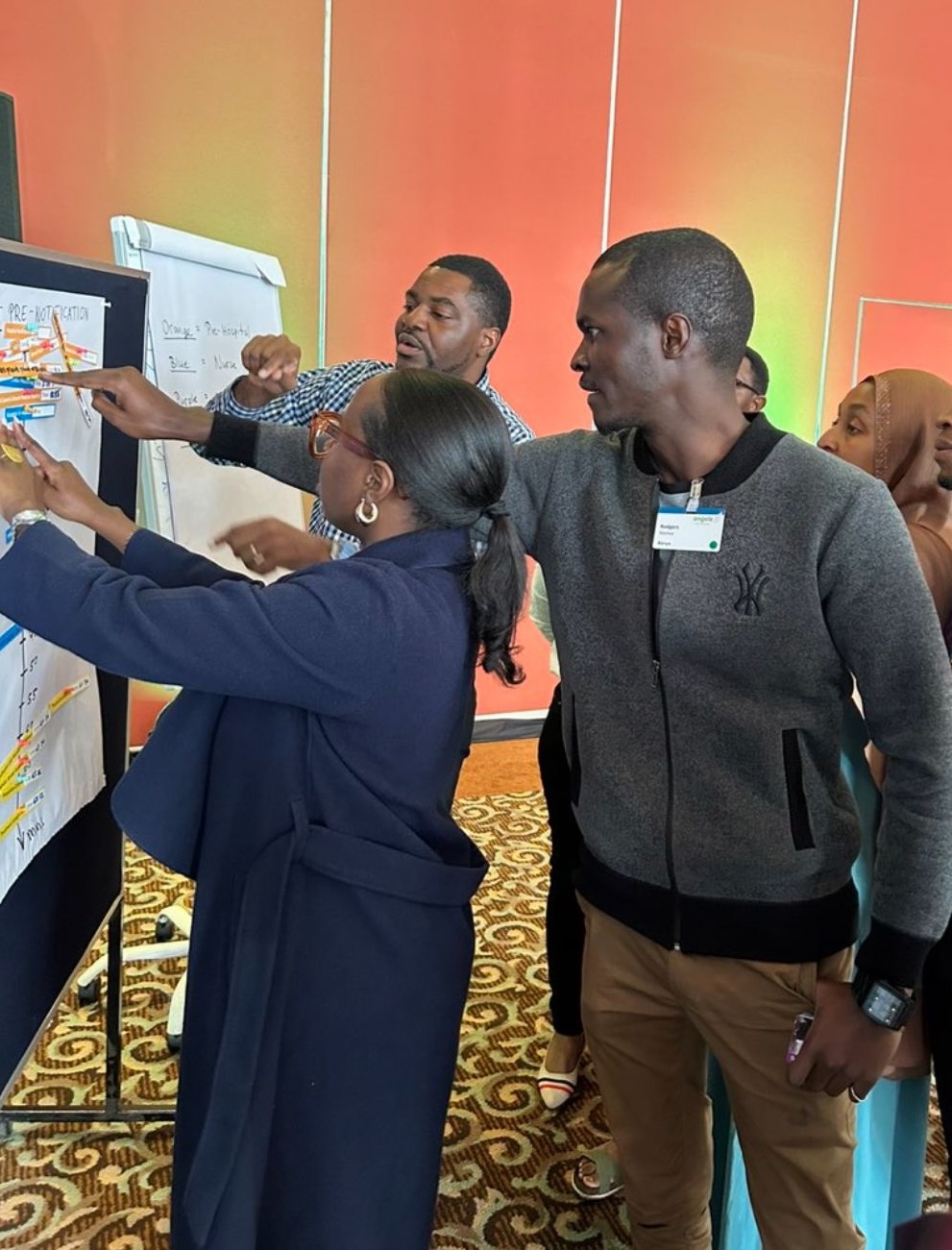
Annie hầu như không có thời gian để tất cả chìm vào trong. “Nếu bạn cần bất cứ điều gì, hãy nói chuyện với Annie”, Jan đã nói trong bài thuyết trình khai mạc của mình và các đại biểu đã nói lời của anh ấy. Trong khi trả lời các câu hỏi và lời mời, Annie rất vui khi thấy những người tham gia thích các bài thuyết trình, nghe phản hồi và chia sẻ các tài nguyên trang web mà những người tham dự ngạc nhiên khi biết là miễn phí.
“Tôi đã chuẩn bị để học hỏi và kết nối”, Annie nói. “Mặc dù tôi vẫn còn nhiều điều để học hỏi, nhưng tôi đã có thể tạo ra sự khác biệt. Nền tảng của tôi không phải là chăm sóc đột quỵ nhưng các bác sĩ mà tôi nói chuyện có thể thấy giá trị và điều đó thúc đẩy tôi thậm chí còn tận tâm hơn để trở thành một chuyên gia.”
Matt khuyến khích Annie sử dụng động lực do sự kiện tạo ra để củng cố mối quan hệ với cộng đồng đột quỵ và cô rất vui mừng khi được gặp nhiều thiện chí hơn trong các bệnh viện mà cô đã đến thăm. “Các bác sĩ sẽ nói với đồng nghiệp của họ rằng ‘Annie sẽ giúp chúng ta’”, cô nói. Sự đón nhận của cộng đồng đột quỵ địa phương đã nhanh chóng và ấm áp.
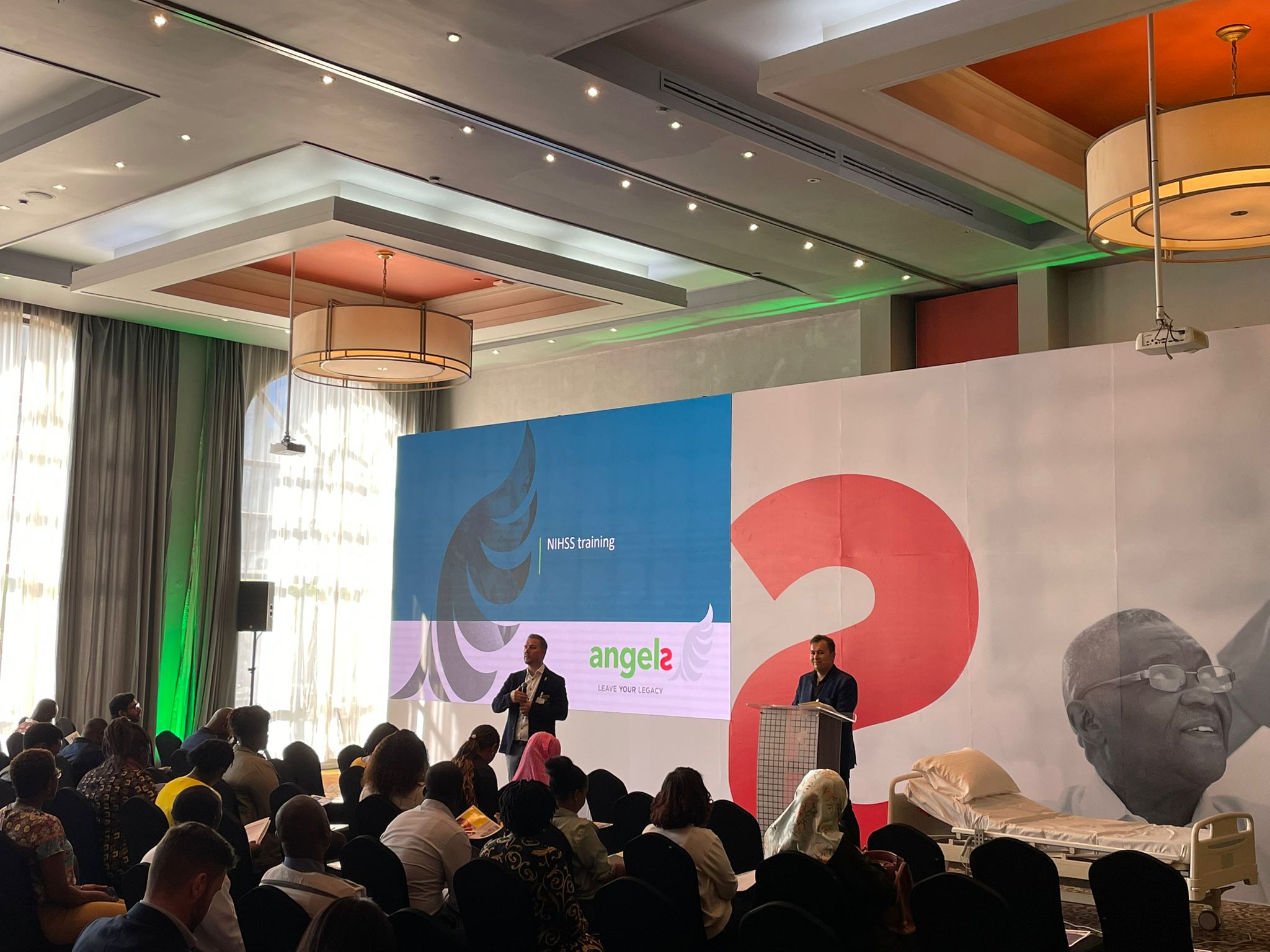
Rita và Madeline cũng bị ấn tượng bởi giọng điệu tích cực lan tỏa trong sự kiện. “Có một cảm giác lạc quan mạnh mẽ”, họ báo cáo. “Những người tham gia chia sẻ vấn đề của họ nhưng không theo cách bi quan. Họ không phàn nàn, chỉ chia sẻ và họ đang tìm giải pháp trong nhóm.”
Thật vậy, khi nói đến danh tiếng của Châu Phi về việc coi trọng cộng đồng và chia sẻ gánh nặng và lợi ích của mình, cuộc tụ họp không làm bạn thất vọng. Annie nói: “Các bác sĩ từ một bệnh viện sẽ nói rằng chúng ta gặp thách thức này, và sau đó một người từ một bệnh viện khác sẽ nói, đây là cách chúng ta vượt qua điều đó.”
Cô cũng cảm nhận được sức mạnh của Cộng đồng Angels: “Cảm giác thật, cảm giác chúng tôi có sự hỗ trợ, ngay cả ở Kenya.”
Làm cho việc điều trị có giá cả phải chăng sẽ là một mục tiêu quan trọng trong lĩnh vực này như ở các khu vực đang phát triển khác và đó là một trong những lĩnh vực cuối cùng sẽ cần sự hỗ trợ của chính phủ. Đột đột quỵ có thể xóa sạch thu nhập và hệ thống hỗ trợ của một gia đình ngay lập tức, với chi phí khổng lồ tích lũy cho xã hội và nền kinh tế. Để gây ảnh hưởng đến chính sách, các cơ quan chức năng cần phải nhận thức được gánh nặng này và bị thuyết phục rằng có một giải pháp hiệu quả.
“Chúng ta cần thành công”, Rita nói.
Họ không có nhiều thời gian chờ đợi. Hành trình của các Thiên thần ở Đông Phi có thể chỉ mới bắt đầu, nhưng nếu sự kiện đầu tiên là bất cứ điều gì để đi qua, cộng đồng nắm giữ chìa khóa và thành công là điểm đến.
